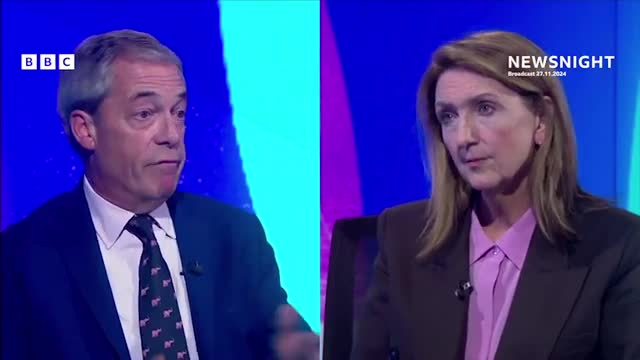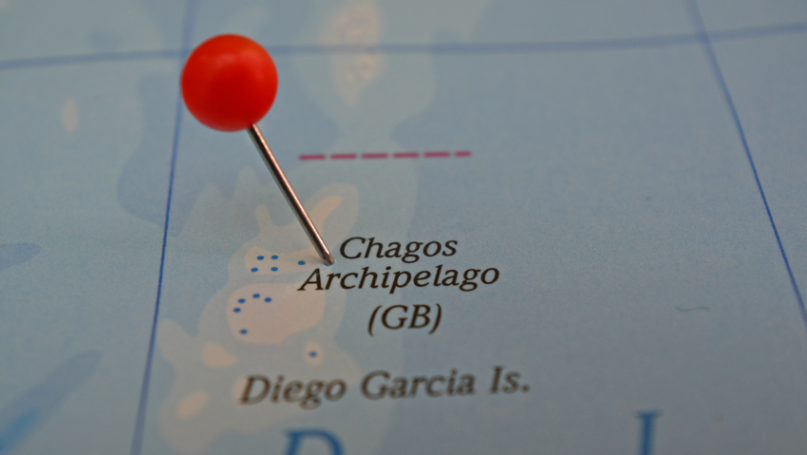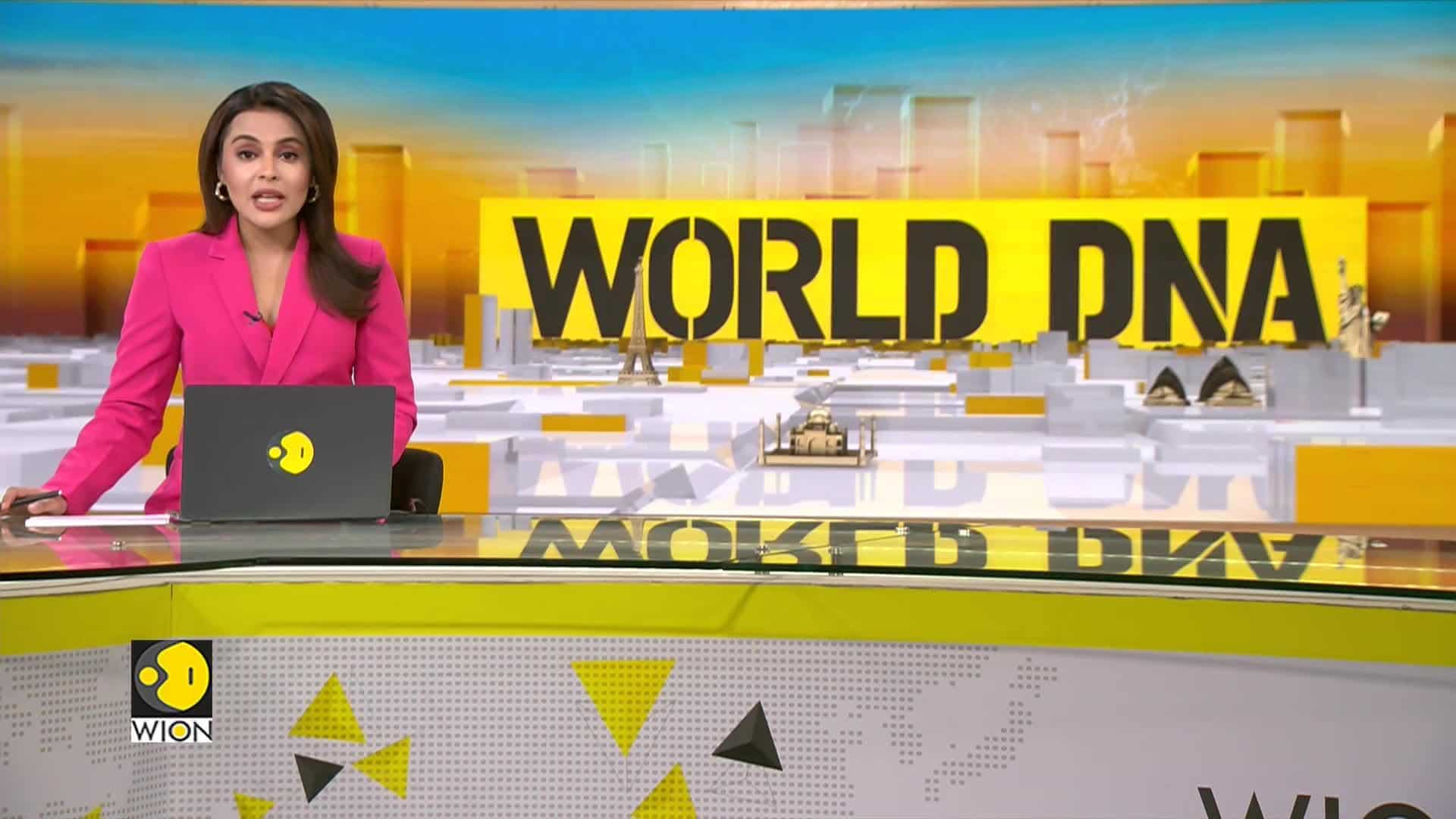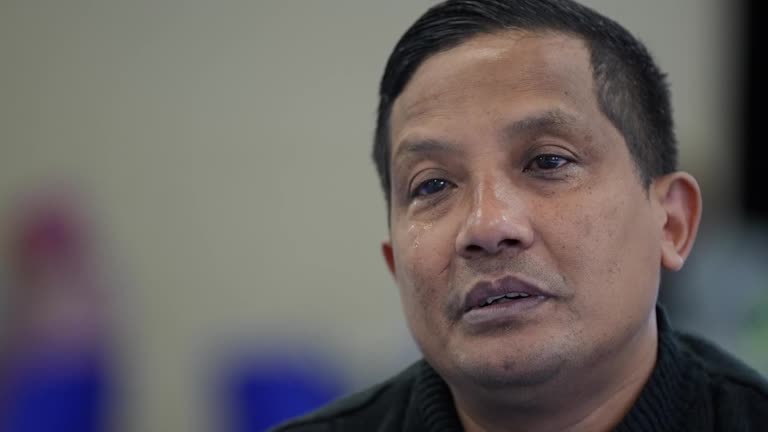CHAGOS DOSSIER
No Easy Courses For Chagos Consensus On Sovereignty And Security – Analysis

Aerial photograph of Diego Garcia, the largest island of the Chagos Archipelago, and which has been used as a joint UK-U.S. military base since the 1970s. Photo Credit: DOD, Wikipedia Commons
By ISS
The Chagos Archipelago dispute is a microcosm of the broader tensions shaping global maritime geopolitics.
By Timothy Walker
The United Kingdom’s (UK) October agreement to transfer sovereignty of the Chagos Archipelago to Mauritius appeared to address longstanding international legal issues surrounding decolonisation and provide a pathway for the resettlement of the Chagossian community.
Yet, beneath the surface, the negotiation process reveals intricate undercurrents. These include the challenges of reconciling Mauritius’s sovereign rights with justice for the Chagossians and accommodating the strategic interests of the UK and United States (US) in maintaining their military foothold in the Indian Ocean.
While the agreement was initially lauded, it has faced significant criticism. Many Chagossians have expressed feelings of marginalisation from the negotiation process. In the UK, some politicians denounced the deal despite their role in initiating the discussions, highlighting the domestic political complexity surrounding the issue.
The outcomes of the November 2024 elections in Mauritius and the US have further complicated the negotiations’ trajectory. The October agreement, welcomed by the Biden administration, and the governments of the UK, Mauritius, and India, seemed particularly timed to preempt potential disruption from the US election. This strategy, however, has not insulated the deal from political shifts and leaves a fragile consensus amid political uncertainty.
The ‘triple delegation’ model risks entrenching US dominance, raising doubts about its long-term viability
Mauritius Prime Minister Navin Ramgoolam promptly signalled that his newly elected government would take a more assertive approach. His concerns over the terms and call for an independent review should help him avoid potential domestic backlash, as seen in controversies surrounding India’s construction of military facilities on the island of Agaléga.
In the US, Donald Trump’s return to power introduces unpredictability. His transactionaldiplomacy style and willingness to renegotiate agreements based on narrow US interests potentially threaten the sustainability of the current framework.
For India, which has supported Mauritius throughout this dispute, the resolution aligns with its broader strategic alignment with the US. Diego Garcia’s pivotal role in US strategy directly supports India’s regional ambitions, with both countries aiming to counter China’s influence in the Indian Ocean.
Helping broker the Chagos agreement bolsters India’s regional influence. For Mauritius and India, challenging the US presence would risk straining relations at a time when all countries concerned are looking to benefit from enhanced partnerships. For example, the UK has sought a free trade agreement with India for years, and the October agreement removed a significant political barrier in these negotiations.
Trump’s transactional diplomacy could derail the fragile framework underpinning the Chagos agreement
The Chagos Archipelago negotiations must clear several intricate sovereignty hurdles. The proposed solution involves a ‘triple delegation’ of authority, with the UK, Mauritius and the US. This model raises significant concerns about its practicality, legality, and long-term viability. From a strategic perspective, it appears the likely arrangement disproportionately benefits the US. It grants Washington operational control over Diego Garcia, while Mauritius leases the territory to the UK, which in turn facilitates US military activities.
Agreements governing similar basing arrangements in the past (and which continue in places such as Guantanamo Bay) seldom delineated rights and obligations in a way that safeguarded host country autonomy.
Adding to the complexity, the UK has committed to funding resettlement projects for Mauritius and paying a lease fee for continued use of the islands. This multilayered arrangement risks entangling Mauritius in administrative complexities that could undermine its sovereignty. Mauritius will assume responsibility for managing any asylum seekers who attempt to land on the archipelago once the handover is completed.
However, in the meantime, the UK plans to transfer any asylum seekers arriving on Diego Garcia to its remote Atlantic Ocean territory of St. Helena. The decision is further mired in controversy due to reports of poor living conditions faced by people already stranded on Diego Garcia.
Mauritius leveraged law and African solidarity to frame the Chagos dispute as a win for decolonisation
The Exclusive Economic Zone surrounding the Chagos Archipelago adds another layer of complexity. Under the United Nations Convention on the Law of the Sea, Mauritius gains access to valuable maritime resources.
However, the coexistence of a major external military base complicates economic activities and vice versa, such as tourism or fishing. These industries often require unobstructed access and freedom from restrictive military zones, and the terms and the extent of the area in which they will apply surrounding Diego Garcia is still to be determined.
Mauritius faces enforcement challenges over its increased area of jurisdiction. External assistance will be essential but may introduce further complexities, particularly regarding the Marine Protected Area to be established and managed with UK assistance.
The Chagos agreement, supported by the US and India, is framed in a broader narrative of reinforcing the rules-based order (RBO). This reflects a broader effort to counter China’s assertiveness in the South China Sea and Indian Ocean.
For the UK, resolving the Chagos dispute lifts some of this pressure. It mitigates accusations of hypocrisy that were undermining the credibility of the RBO in matters concerning its relevance to sovereignty, international law, and multilateral cooperation in the South China Sea.
Mauritius’s success in leveraging international legal mechanisms is a crucial reminder of the ever-growing importance of multilateral institutions in resolving disputes. With strong support from the African Union, African states framed the issue as one of decolonisation, applying sustained diplomatic pressure on the UK.
This case arguably demonstrates that there is soft power to be tapped from international law for diplomats from small states to achieve equitable outcomes.
Despite the promise of the agreement, its implementation remains fraught with challenges. Negotiators must address the competing priorities of sovereign control, economic development, environmental preservation and strategic security.
The ultimate success will hinge on the legitimate inclusion of the Chagossian community to ensure justice in the process.
- About the author: Timothy Walker, Senior Researcher, Maritime, ISS Pretoria
- Source: This article was published at ISS Today

The Institute for Security Studies (ISS) partners to build knowledge and skills that secure Africa’s future. Our goal is to enhance human security as a means to achieve sustainable peace and prosperity. The ISS is an African non-profit organisation with offices in South Africa, Kenya, Ethiopia and Senegal.
Story by Martin Beckford
24/12/2024
Mauritius is demanding more from Britain in the deal for the Chagos Islands with Labour desperate to sign it off before Donald Trump gets into the White House.
Ministers were accused by a senior member of the Mauritius government of 'trying to make' it sign an agreement after it rejected the original one and 'quibbling over a small amount'.
It is another embarrassment for Labour as it tries to seal the treaty promptly in case Mr Trump decides it risks the security of an Anglo-American military base on one of the islands.
Under the terms of the deal announced in October, the UK will give up sovereignty of the archipelago in the Indian Ocean to Mauritius but maintain a 99-year lease for the Diego Garcia base for an undisclosed price.
According to the BBC, Mauritian deputy prime minister Paul Berenger said on Sunday: 'They are trying to make us sign and quibbling over a small amount.'
He has admitted his country needs funds 'but not under any conditions'.

Labour is desperate to sign it off on the deal as soon as possible (Pictured: Labour leader Sir Keir Starmer)

Labour want the deal to be done before Donald Trump gets into the White House

As part of the arrangement with Mauritius, the joint US-UK military base on Diego Garcia - the largest of the islands - will remain operational for at least 99 years
Last night the Friends of the British Overseas Territories charity said: 'There was never any need for a 99-year lease.
'The Chagos Islands are British sovereign territory and any capitulation is ridiculous.'
The Mail has previously reported the deal could amount to tens of millions of pounds a year for the duration of the lease.
The Foreign Office declined to comment on the latest claims.
2:30

The IndependentFarage claims Trump insiders ‘horrified’ at Chagos Islands deal with Mauritius
0:51
Story by Oliver Trapnell
• 24/12/2024 • GB News
Mauritius's new government is holding up a landmark sovereignty deal with the UK over the Chagos Islands due to financial disagreements.
Deputy Prime Minister Paul Bérenger told his constituents on Sunday that negotiations were stalling over monetary terms.
"This base existed on our land, on our territory... but not only it is [about] our sovereignty," Bérenger said.
"There are some things you can't accept if you're a true patriot.

Keir Stamer and Chagos islands© G Ne
"They are trying to make us sign and they are quibbling on a small amount."
Speaking in parliament last week, Bérenger admitted Mauritius needs "money to get out of the economic mess the previous government got us into, but not at any price, not under any conditions".
Under the terms of the original agreement announced in October, the UK would relinquish sovereignty of the Chagos archipelago to Mauritius whilst maintaining a 99-year lease for Diego Garcia, home to a major UK-US military airbase.
The UK committed to providing a package of financial support to Mauritius, including annual payments and infrastructure investment.

Chagos Islands© GB News
When first announced, UK Prime Minister Sir Keir Starmer and then Mauritian Prime Minister Pravind Jugnauth hailed it as a "seminal moment" in their relationship.
In a joint statement on Friday, both nations affirmed their commitment "to finalising a treaty as quickly as possible".
Next negotiations over the future of the Chagos Islands appearFrance24 (Video)
Mauritius holds out on Chagos deal despite US pressure
There is growing urgency to finalise the deal ahead of the inauguration of President-elect Donald Trump in the US
Prime Minister Navin Ramgoolam told MPs on Friday that the UK was keen to complete the agreement "before [Donald] Trump swears in as president on 20 January".
The proposed deal has already faced criticism from Trump's camp, with Marco Rubio, his pick for secretary of state, describing it as a threat to US security.

Paul B\u00e9renger© GB News
Both the UK and Mauritius acknowledged in their Friday joint statement that "ongoing conversations" remained productive, despite the financial disagreements.
In the UK, the deal has faced strong opposition from the Conservative Party.
Shadow Foreign Secretary Dame Priti Patel accused the Labour Government of putting national security at risk and "letting our standing go into freefall" in an increasingly dangerous world.
"How much is the British taxpayer going to be liable for each year, and in total, over 99 years?" she asked in the House of Commons.
Foreign Office Minister Stephen Doughty defended the agreement, insisting it would enhance UK security rather than damage it.
He said the deal would protect the military base's operation and ensure it was "on a safe footing well into the next century".
The UK has faced mounting diplomatic pressure over its control of the Chagos Islands in recent years.
Various United Nations bodies, including its top court and general assembly, have overwhelmingly sided with Mauritius, demanding the UK surrender what some have called its "last colony in Africa".
Mauritius has long maintained it was illegally forced to give up the Chagos Islands in exchange for its independence from Britain in 1968.
Until recently, the UK had insisted that Mauritius had no legitimate claim to the islands.
Starmer's plan for Chagos Islands rejected, Mauritius PM Ramgoolam floats new deal
In a historic deal announced in October, the British and Mauritian governments agreed that the UK would hand over the sovereignty of Chagos Islands, a cluster of some 60 islands around 1,000 kilometres from Indian subcontinent, to Mauritius and secure a 99-year lease for the strategic US-UK military base at Diego Garcia, which is located on one of the islands of the archipelago.
Weeks after the deal was announced, Mauritian Prime Minister Pravind Jugnauth, who presided over the negotiations of the deal, lost elections in a landslide defeat. The new government of PM Navinchandra Ramgoolam ordered a review of the deal soon after taking over the administration and last week announced that it has essentially junked the deal.
Ramgoolam on Tuesday (December 24) said that there were “certain things” in the deal that he could not accept.
After Ramgoolam ordered the review and submitted a counter-proposal, the British government submitted its response which is under review by the Mauritian government, according to BBC News.
The stand-off with the Ramgoolam government over the Chagos Islands deal is a major embarrassment for British PM Sir Keir Starmer, who is already dealing with unpopularity at home amid worsening economic crisis — the British economy registered 0 per cent growth in the July-September quarter. The Chagos Islands deal also generated criticism in the UK as the Conservative Party saw it as a betrayal of British and security interests in the hugely important Indo-Pacific region.
The British are quibbling on small amount, says Mauritian Deputy PM
While the Mauritian government has not made its problems with the deal public, the leaders have indicated the dispute is about the money.
Under the terms of the deal announced in October, the UK would pay Mauritius annually for the next 99 years for the lease as well as fund infrastructure development in the Indian Ocean nation. Deputy Prime Minister
Paul Berenger has said that the terms are not good enough for his government.
“This base [at Diego Garcia] existed on our land, on our territory... but not only it is [about] our sovereignty. There are some things you can’t accept if you’re a true patriot. They are trying to make us sign and they are quibbling on a small amount,” said Berenger, according to The Daily Telegraph.
Ramgoolam has also conveyed his de-facto rejection of the deal to the outgoing Joe Biden administration of the United States, which is party to the deal as it jointly operates the Diego Garcia military base. In a call with Secretary of State Antony Blinken, Ramgoolam said he did not agree with "certain things" in the deal.
“I made him understand that we do not agree with certain things contained in the agreement concluded on October 3 by the former Mauritian prime minister. [I] informed him that we have made a counter-proposal which will be transmitted to him,” said Ramgoolam to his MPs after the call, as per The Telegraph.
The newspaper reported that Ramgoolam was referring to the money that the UK would provide Mauritius, conveying to Blinken that Mauritius was not okay with the amount negotiated in the deal in October and wanted more. That would be in line with his previous statements.
Previously, the newspaper had reported that Ramgoolam had rejected the terms of the deal by saying it “would not produce the benefits that the nation could expect”.
Mauritius seeking a better bargain with UK
To be sure, Ramgoolam is not walking out of the deal but is driving for a better bargain. Earlier this month, he told the parliament that the government remained committed to the deal but on better terms
"During the discussions, Mauritius made clear that while it is still willing to conclude an agreement with the United Kingdom, the draft agreement which was shown to us after the general elections is one which, in our view, would not produce the benefits that the nation could expect from such an agreement," said Ramgoolam, according to BBC.
Following the exchange of proposals, a delegation of senior British officials including led by Harriet Mathews, the Director General for Africa, the Americas, and Overseas Territories at the Foreign Office, visited Mauritius. The specifics of the discussions were not made public.
The BBC quoted a spokesperson for Starmer as saying that the government continues to work with Mauritius to finalise the deal.
"We remain confident the agreement is in both sides interests and will continue to work with the new Mauritius government to finalise the deal. We've always said we'll engage with the new administration in order to finalise the deal," the spokesperson told BBC.
The Chagos Islands deal has come under great criticism from the Conservative Party in the Opposition. Shadow Defence and Foreign Secretaries James Cartlidge
and Dame Priti Patel slammed the Starmer government for surrendering the islands and also "to pay for the privilege of doing so".
Contrary to major policy decisions, such as the support for Ukraine in the war with Russia, the Chagos Islands deal does not have bipartisan consensus in the UK. Even though the Foreign Office had negotiated the deal for two years through the previous premier Rishi Sunak's term, his Defence Secretary Grant Shapps had blocked the deal as the arrangements were "a shocker".
"It surrenders sovereignty and pays for the pleasure! That’s why I stepped in to block this disastrous deal," said Shapps in October.
Shapps further called the deal "weak and deeply regrettable".
"This is absolutely appalling. Surrendering sovereignty here creates read across to other British bases. It's a weak and deeply regrettable act from this government," said Shapps.
Ra Mason and Suzanne Doyle
Download PDF
Oct 26 2024 • E-INFO

JoaoCachapa / Shutterstock
The Chagos Archipelago is a remote, mostly uninhabited, group of approximately 60 atolls scattered across the Indian Ocean. The largest of these, Diego Garcia, is home to one of the most secretive and strategically significant US military bases in the entire Indo-Pacific region. The base and the islands have a notorious past. After being settled by the French in the 18th Century, this highly dispersed group of islets was ceded to the British in 1810. Following the British excision of the Chagos Archipelago from the soon-to-be independent Mauritius and Seychelles in 1965 to create the British Indian Ocean Territory (BIOT), the US and UK signed a bilateral agreement in 1966 to create a US military facility on Diego Garcia. Between 1965 and 1973, the British, backed by the US, forcibly displaced the Chagossians from the Archipelago, so that the military base could operate in upmost secrecy.
On first appearance the UK government’s announcement to return the Chagos chain to Mauritius, on condition that the American military’s lease of Diego Garcia be extended by a further 99 years would appear to close this shameful chapter in the Anglo-American alliance. However, the nature of this agreement between London and the Mauritian capital, Port Louis, is highly contentious for multiple reasons. Perhaps most significantly, as we explain below, the plight of the Chagossians themselves has been grossly overlooked in the wake of fears about ceding long-term geostrategic advantages to China and a process of political correctness that involves grandstanding the idea of decolonisation whilst at the same time largely ignoring those who have been most adversely affected by colonialisation.
In recent decades, particularly following the UK’s Brexit from the European Union, the former colonial power has found itself increasingly isolated at the UN and other international fora when it comes to retaining sovereignty over its distant overseas territories. The Chagos Islands are one such example. Since Mauritian independence, Port Louis has consistently reiterated its claims to the islands, gaining support from the wider international community, including, crucially, its largest overseas investor, China.
Security observers suggest that the increasing levels of financial investment from China – upward of a billion dollars – are likely to mean that Beijing has considerable real-world influence in the political affairs of this small island nation. As such, with the US and its allies identifying the Indian Ocean rim as a key area of geostrategic competition, concerns have been raised over what this means for wider regional security. This includes longer-term questions about how loyal to any agreement Mauritian and Chinese authorities are likely to be. Certainly even minimal impact upon the running of Diego Garcia would raise alarm bells, as a vital launch pad for bombers and personnel transiting into conflict zones.
It is extremely unlikely, not to mention impractical, under the terms made publicly available that Mauritius would suddenly renege on its word and seek to expel US forces from Diego Garcia to be replaced by China’s People’s Liberation Army Navy (PLAN). Nevertheless, even in the short- to mid-term, it might potentially increase the vulnerability of sensitive information, as various areas of non-traditional security could be compromised following administrative oversite being re-assigned from the British Foreign Office to Mauritian authorities. Furthermore, the impediments preventing China’s maritime development of other uninhabited clusters within the Chagos Islands have seemingly been reduced by placing them under the administration of an economic ally. For example, future legal amendments could pave the way for Beijing to create civilian logistics hubs equivalent to the reclaimed land structures now populating China’s infamous 9-dash line in the South China Sea. These would be adaptable and could thereafter be transformed into de facto PLAN naval bases in the case of increased tensions or the outbreak of conflict.
So, given the potential strategic risks of losing sovereignty over the archipelago, why has the UK done so, evidently with the approval of the United States? This historic deal between the UK and Mauritius has been hailed by both governments and many neutral observers as a triumph for decolonisation. It also comes as part of a wider drive from the new UK Government, led by Prime Minister Keir Stammer, to right historical wrongs. Many of these deeds were committed as a function of colonial conquest and exploitation of the Global South. Handing back the Chagos Islands to Mauritius thereby marks the end of such British colonialism in Africa to powerful symbolic effect.
But are the motivations behind this move really so noble? Given the weight of international opinion on the true sovereignty of the archipelago, it is difficult to see what option the British had if they were to maintain their reputation as upholders of international law. Furthermore, the Biden administration feared that Mauritius could successfully seek a binding ruling from the International Court of Justice (ICJ) to seize possession of the islands, threatening the military base’s future. US authorities concluded that it was strategically important for the British to reach an agreement, and informed the new Labour government that failing to do so would jeopardise the ‘special relationship’. This is another example of the Chagos Islanders and Diego Garcia being used as pawns by the Anglo-American alliance. For example, in the 1960s, in exchange for the costs involved in the forceful relocation of the Chagossians and the payoffs made to Mauritius and the Seychelles, as well as to conceal US-UK actions from wider scrutiny, the UK secured a 14 million discount on their purchase of the US Polaris missile system.
The contemporary UK deal with Mauritius means that American military power projection capabilities will for now (and the next 99 years!) essentially be assured from Diego Garcia at no extra cost. In contrast, bizarrely, having just relinquished sovereignty over the islands, the British government will now presumably be forced to lease any military use it undertakes from the base at cost to UK taxpayers. None of these aspects, or the precise wording and content of the deal, were discussed in parliament, so it is difficult to discern whether this was an ethically sound act by the UK government or one of acquiescence to US strategic security interests that happened to conveniently fit with a politically popular narrative of decolonisation.
From an ethical point of view, one could argue that the Chagossians should have been given the lead role in terms of determining their own future and that of their former homeland. Yet, they have been almost entirely excluded from the process despite the injustices suffered from being forcibly removed from Diego Garcia to Mauritius and the Seychelles. As a result, many Chagossians harbour deep resentment towards not only the British authorities, but also the Mauritians, who failed to either protect their rights as citizens of the islands or provide basic welfare services for them upon arrival. Many died.
If the Mauritian government headed by President Roopun is really to be lauded as a bastion of justice and decolonisation, there should surely have been a more concrete commitment by his administration to repatriate Chagossians to their homeland. Instead, this tiny island minority is left with an unspecific plan to make way for their right to return to the Chagos Islands. For most, there is little hope of ever realising that dream. Afterall, political leaders in Port Louis – located over 1000 kilometers from Diego Garcia – might pay lip service to these cruelly victimised former inhabitants, but the country’s tiny budget seems insufficient to invest in the kinds of major infrastructural development that would be required to make the other Chagos Islands habitable, even if supported by a proposed British “package of financial support”.
The Chagos Islands are now in effect part of Mauritius. The decision has been welcomed by political figures and international institutions around the globe as a shining example of constructive dialogue, decolonisation and the rule of international law. This may have won Britain’s new leader brownie points and a chance to grandstand on the global stage as a wise and noble statesman. It also appears to have been endorsed by the US as a relatively low-cost means to secure its key base on Diego Garcia for the foreseeable future and therefore preserve regional hegemony. In the longer term, China’s influence over Mauritius’ fragile economy may allow it to exert a degree of political leverage, or even gain a military foothold in the region. Meanwhile, the return to what was once an idyllic island home of an entire community and the realisation of real justice remains a distant dream. Within current Anglo-American conceptions of security this deal was the best outcome. But let us not pretend that this is anything other than strategic goals taking precedence, with decolonisation serving as window dressing.



